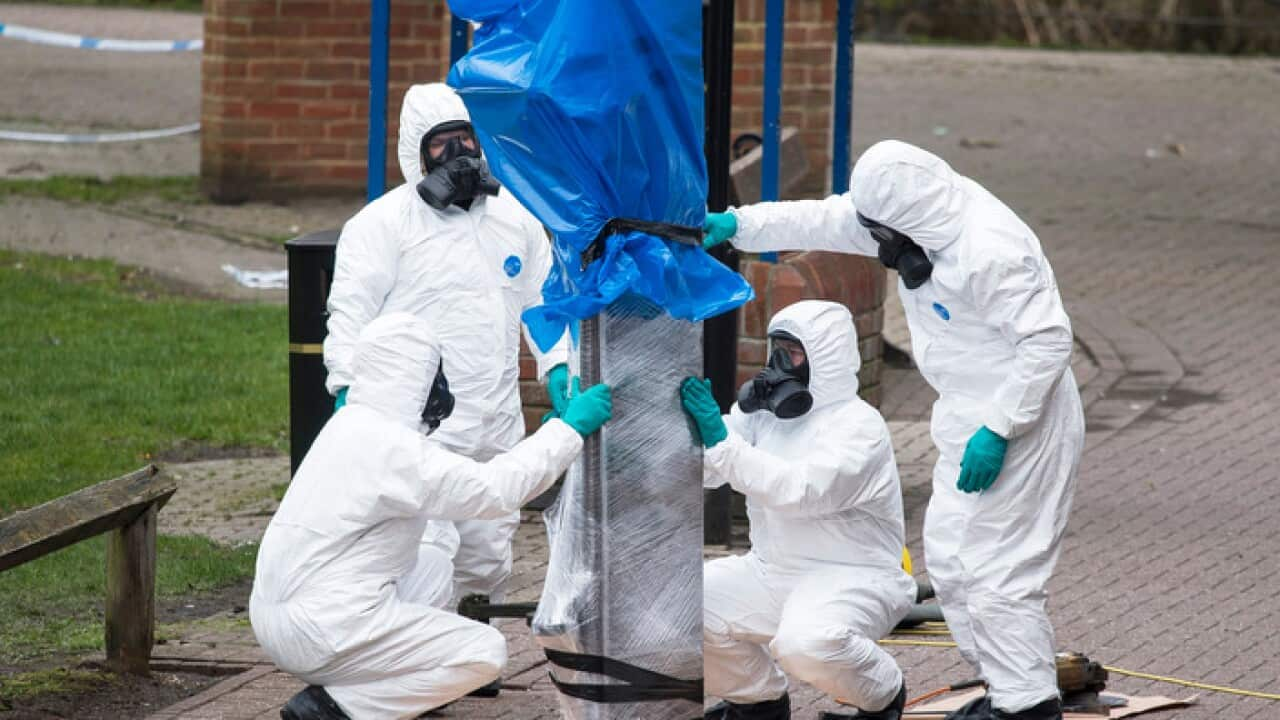A man and a woman in the southern England town of Amesbury have been struck down by the deadly nerve agent Novichok, the same substance that nearly killed former Russian spy Sergei Skripal and his daughter Yulia 11 kilometres away in March.
What is Novichok?
Novichok is more potent and lethal than sarin or VX. It is created when two separate non-toxic substances are brought together and form into a nerve agent.
"Novichok is not really very different from all the classics, you've got the same basic chemical framework at the heart of it," University College London Professor of Inorganic Chemistry Dr Andrea Sella says.
Why was Novichok created?
Novichok, which means newcomer in Russian, was developed by the Soviet Union in the 1970s as a new kind of chemical weapon that would be harder to detect, more potent than existing nerve agents and exempt from the Chemical Weapons Treaty.
"Novichok agents are ones that were kept very quiet by the Russians and developed to try and gain advantage against the more conventional things they knew Western governments had," Prof Sella said.
How does it work?
Novichok attacks the nervous system and stops messages being transmitted around the body causing the heart to slow, loss of vision and constricted airways leading to suffocation or brain damage.

What are the symptoms?
Novichok can be inhaled as a fine powder, absorbed through the skin or ingested. Symptoms include convulsions, paralysis, respiratory failure and death and begin within seconds or minutes of exposure.
How is it treated?
Antidotes need to be administered immediately but some damage from chemical and oxygen starvation are irreparable.
It is not known if there is an antidote available for Novichok.

